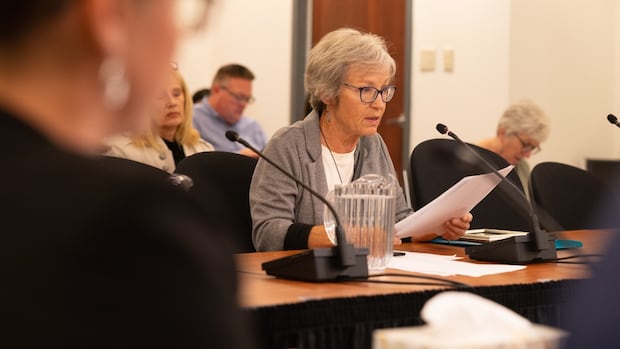Nova ScotiaAdvocates for families of loved ones struggling with mental health challenges are welcoming a proposed change in new government legislation, but they say it does not go far enough and risks leaving too many vulnerable people without access to help before it’s too late.Proposed changes to Personal Health Information Act don’t go far eough, MLAs hearMichael Gorman · CBC News · Posted: Sep 29, 2025 4:31 PM EDT | Last Updated: 2 hours agoNancy Saunders, a co-lead for Nova Scotia Moms for Compassionate, Collaborative Mental Health Care, addresses MLAs during a meeting Monday of the legislature’s public bills committee. (Dan Jardine/CBC)Advocates for families of loved ones struggling with mental health challenges are welcoming a proposed change in new government legislation, but they say it does not go far enough and risks leaving too many vulnerable people without access to help before it’s too late.Bill 127, omnibus legislation tabled by the Progressive Conservatives last week that would make changes to seven existing acts and create one new one, includes the removal of the word “imminent” from the Personal Health Information Act.The change is intended to broaden the ability of health-care providers to disclose information if there is a reasonable belief of significant danger to a person or others.Nancy Saunders, a co-lead of the group Nova Scotia Moms for Compassionate, Collaborative Mental Health, said that change is a good first step, but it still risks denying too many people in crisis help before it’s too late.Heather Spidell is a co-lead for Nova Scotia Moms for Compassionate, Collaborative Mental Health Care. (Dan Jardine/CBC)Saunders’s son, Ben Brennan, died by suicide in 2023 when he was 29. She said the law as it exists now prevented her family and others in similar situations from being able to intervene in a meaningful way before their loved one reached a crisis point. “In 2024, 159 people met the requirement for this law minutes or hours before they took their own life,” she told MLAs on the legislature’s public bills committee.”So I ask you, is there a world that exists where that would not be considered far too late to share vital information in order to prevent escalation and death?”Saunders said she and members of her organization have worked with government officials since January to change the legislation. And while they were glad the word “imminent” was removed, they were surprised to see other wording they proposed not incorporated. Omnibus bill tackles Crown land protesters in N.S., supports domestic violence survivors A different proposalThe government amendment says information can be shared when “the disclosure will avert or minimize a significant danger to the health or safety of any person or class of persons.” The term “significant danger” differs from what Saunders’s group had proposed. Its preferred wording is “risk of serious harm.”Six other provinces and territories already use the term “serious risk of harm” or an even lower threshold, Saunders told MLAs. She’s worried the term “significant danger” was left in to appease officials’ concerns about human rights or patient confidentiality.”‘Significant danger’ refers to a present situation while ‘risk of serious harm’ describes a likelihood of harm,” she said. “Not including the word ‘risk’ increases the barrier to vital, life-saving information sharing.”Heather Spidell, a co-lead of the Nova Scotia Moms group whose 36-year-old nephew, Adam McLean, died by suicide three years ago, credited the government for the change it has proposed.But like Saunders, she said it does not go far enough.’Families have so much valuable information’People in crisis aren’t likely to share certain things with a doctor, she said. Families can have valuable information to share with health-care providers and they need to be able to do it. That can include knowing if someone has stopped taking their medication, if they’re not eating, not getting out of bed or signs of self harm.”All of these things are not necessarily something that would be visible in an ER visit or on a virtual call of in a doctor’s office,” she said.”And so, as much as we want to support them with their privacy and their autonomy, families have so much valuable information.”Along with calling on the government to further amend the bill to incorporate the language they have proposed, Saunders and Spidell also called for public health education on consent, trauma-informed care training for all providers and expanded education on early warning signs of mental illness and available supports.They say having an approach that is consistently understood and practised is as much to the benefit of health-care providers as it is to families.Debate on Bill 127 is expected to continue this week at Province House.ABOUT THE AUTHORMichael Gorman covers the Nova Scotia legislature for CBC, with additional focuses on health care and rural communities. Contact him with story ideas at michael.gorman@cbc.ca
N.S. advocates call for further changes to improve mental health care for people at risk











